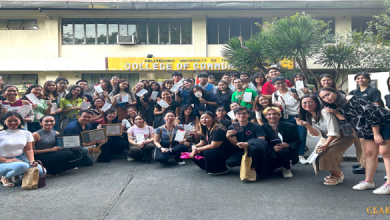
Far Eastern University (FEU) is expanding its healthcare programs to meet the increasing demand for healthcare professionals in the Philippines. Starting in the 2024-2025 academic year, FEU Manila will introduce a Bachelor of Science in Nutrition and Dietetics and a Bachelor of Science in Pharmacy, while FEU Cavite will launch a Bachelor of Science in Nursing.

The Department of Health reports a shortfall of approximately 190,000 healthcare professionals in the country.
“To bridge the gaps in our healthcare sector, we need the collective effort of various stakeholders. FEU is committed to playing its part by preparing future healthcare professionals with both practical skills and a global perspective, empowering them to tackle healthcare challenges effectively,” says Moira Uy, Dean of Nursing at FEU’s Institute of Health Sciences and Nursing.
A Global Perspective
In its aim to elevate Philippine healthcare education on the global stage, FEU has made significant strides with its international branch campus in Brunei, JPMC College of Health Sciences. This initiative makes FEU the first Philippine university to receive a transnational permit for nursing from the Commission on Higher Education.
“FEU is dedicated to the goals of the Transnational Higher Education Act by fostering the exchange of information, personnel, and academic programs. This collaboration encourages innovation and positions FEU as a competitive force in global nursing education,” adds Uy.
FEU’s recent achievements underscore its excellence in healthcare education. In the latest Philippine Nurse Licensure Examination, FEU Manila secured the third spot with a 91.84% passing rate. The university also excelled in the recent Medical Technology Licensure Examination with a 92.86% passing rate for first-time examinees.
FEU’s ongoing investment in healthcare education, both locally and internationally, reflects its commitment to the United Nations Sustainable Development Goal 3: Good Health and Well-Being.
“FEU is dedicated to generating nursing knowledge, fostering innovation, and developing advanced skills needed for success in the global knowledge economy. We continue to make significant contributions to the advancement of quality healthcare resources,” says Uy.







